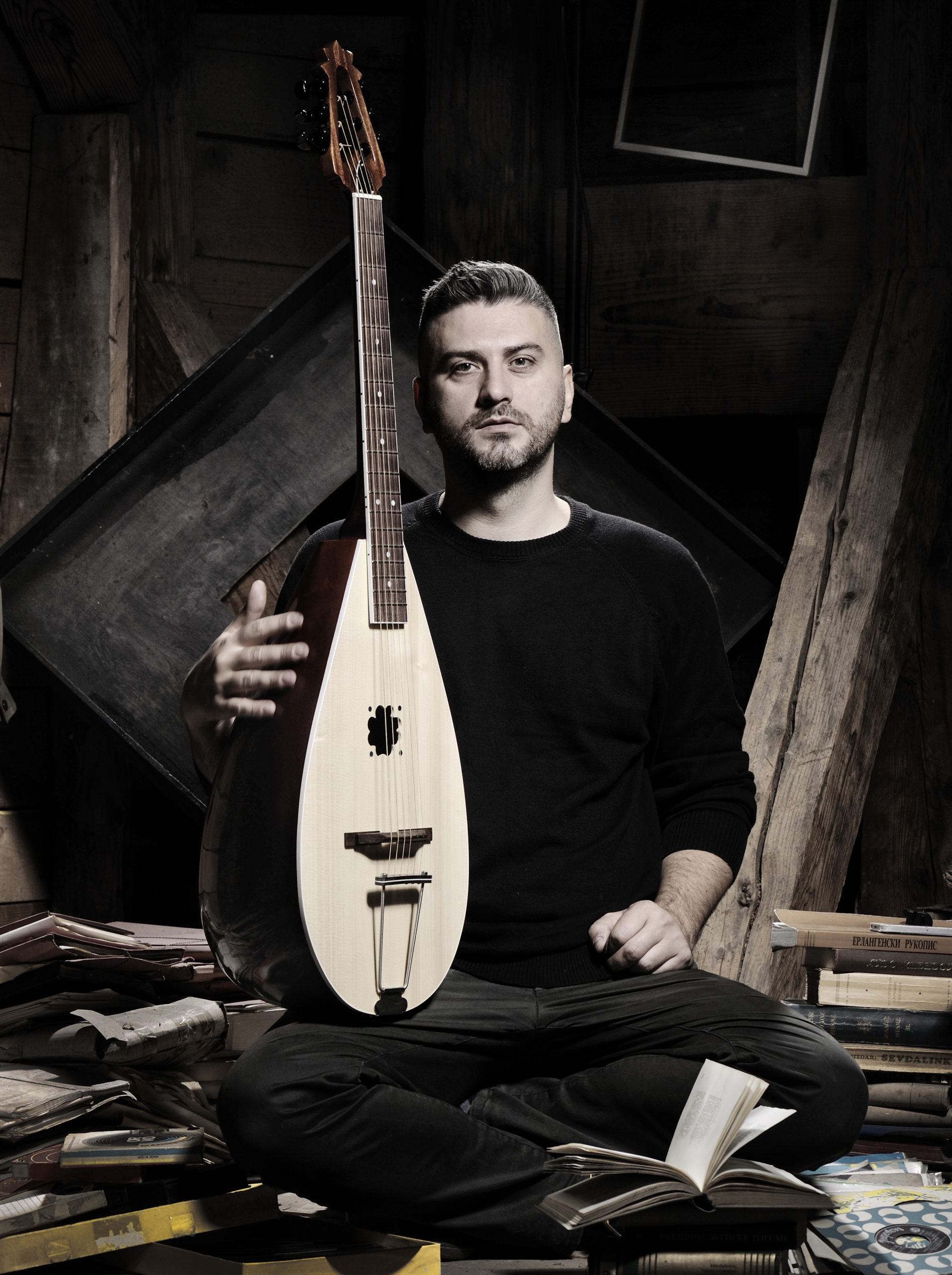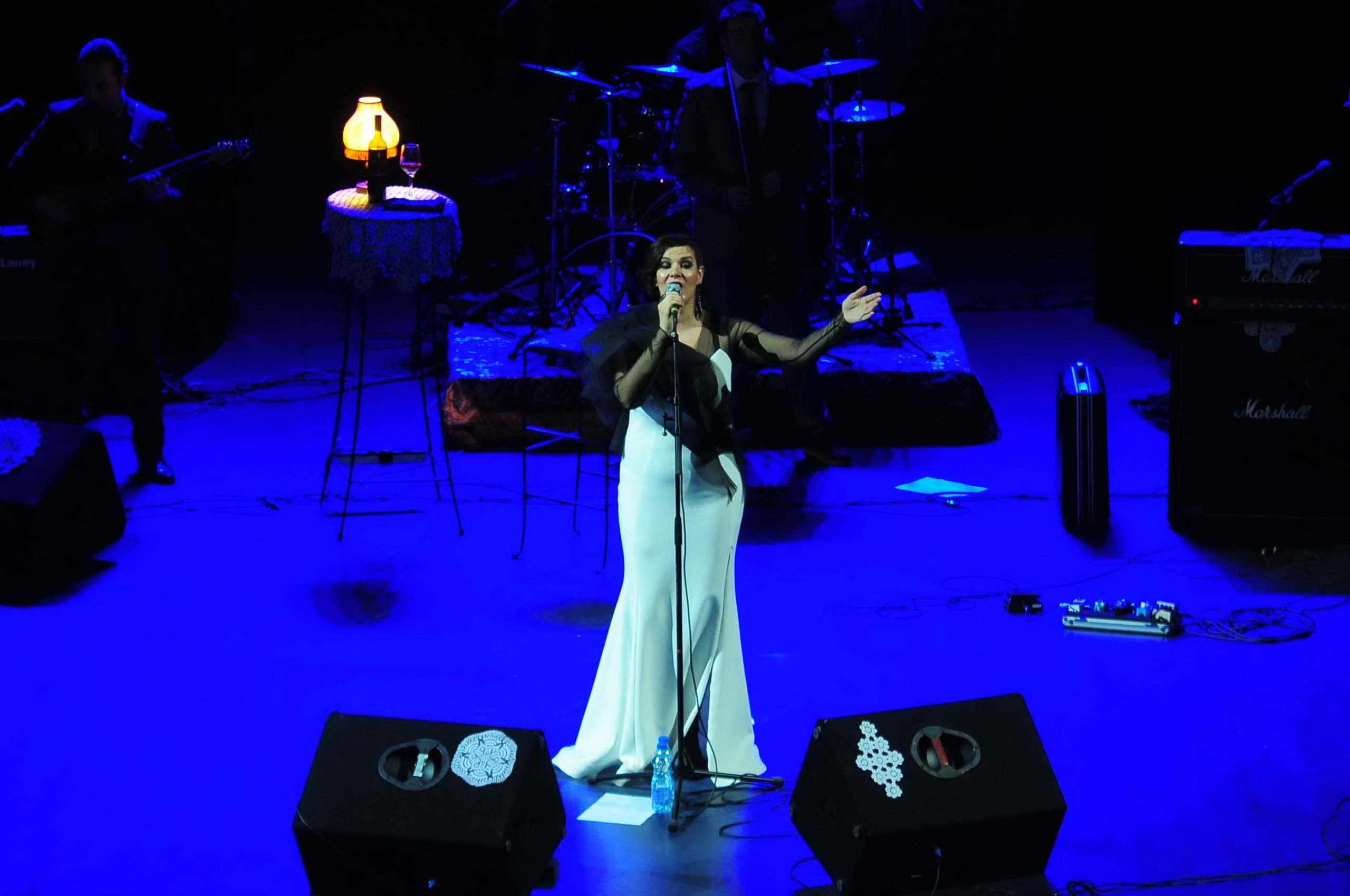
Sevdalinka (also known as sevdah) is the folk musical expression of Bosnia and Herzegovina. The word sevdalinka comes from the Arabic word sawda which means ‘black bile’ – one of the four bodily ‘humors’, which was believed to determine the melancholic state.
In Bosnian, sevdah took on the meaning of longing and of a zealous and sorrowful love. It is not possible to determine the exact period of the origin of sevdalinka, but it is assumed that it was created right after the Ottoman conquest of medieval Bosnia when the first urban settlements emerged. As they settled, the Ottomans brought with them certain musical traditions and melodies, which were representative particularly of the Asia Minor area. These melodies are part of a melodic system called makam and have their own characteristics, which the peoples of the Balkans adapted to their emotions with their singing. Sevdalinka is primarily an urban folk song of Bosniaks, but it is also popular throughout Southeast Europe.
Musically, sevdalinka is characterized by a light, slow tempo and rich harmony, which leave a melancholy feeling with the listener. They are very structurally complex songs and imbued with emotions, and they are traditionally performed with a lot of passion and soul. Like any art form, the traditional music of this area has its laws, history and future, and many performers opt for more modern performances of older versions by adding their personal stamp.
“The sevdah I sing is a wonderful genre that combines poetry and music in a miraculous way. I see it as a field of new possibilities,” reveals Damir Imamović, Bosnian musician, performer of traditional music, and singer-songwriter of sevdalinka.
He has performed in several bands and founded the Damir Imamović Sevdah Takht band in 2012. He also writes his own songs and says that nothing more than the inexplicable beauty of a text or melody will drive him to record a song. The song “Pjevat ćemo šta nam srce zna” (We’ll Sing What Our Heart Knows) performed by Amira Medunjanin was written by Damir. The album Singer of Tales received the Best of Europe award after being at the top of the Transglobal chart for months. Of the 100 best world music albums, he took sixth place and the album was also declared the best in the category of traditional music by the German Association of Music Critics.

When talking about the best in the world of sevdalinka, it is impossible not to mention Biljana Krstić from Serbia. After a career in pop music, in 2001 she founded Bistrik band through which she promotes ethno-musicological heritage. So far, they have released four albums: Bistrik, Zapisi, Tarpoš and Izvorište. Tarpoš featured in British world music magazine Songlines’ ‘Top of the world’ selection, as well as winning French magazine TRAD’Mag’s ‘Bravos’ award for lyrics of the month.
In addition to many other numerous awards, Biljana Krstić and Bistrik received the ‘Vitez srpske muzike’ (Knight of Serbian Music) award in 2009, and in 2015 Krstić and Miki Stanojević won the Grand Prix award for the music from the film Branio sam mladu Bosnu (I Defended Young Bosnia).
“Those songs of distant ancestors both make me happy and heal me at the same time. When I just remember how much time I spent with old music and audio recordings, with archive and field recordings… I listened to them God knows how many times, analyzed them, and learned to sing them. The source of traditional texts is always clear and strong. Those beautiful songs strike directly into the heart and flood the banks of all your senses. You feel as if time has been suspended, which is complemented by immense satisfaction and joy,” says Biljana.
For Vera Josifovska-Miloševska from Macedonia, traditional music is also a living, breathing thing. She is the vocalist of Ljubojna, one of the most prominent and most representative bands of traditional music. The band was formed in 2001 and in 2005, they recorded their debut album Parite se Otepuvačka (Money is Murder). In 2012, Vera Miloševska was chosen among the 12 best vocalists from the Balkans to participate in the Regional Cooperation Council project Les femmes des Balkans.
“What connects me to traditional music is love. These local melodies gain contemporary progression and expression through my singing,” she adds.

Among the newer performers of traditional music, it is worth singling out the Zagreb ethno-group Kazan. It was formed in 2012 and their debut album Ružo was released in 2018. Singer Dunja Bahtijarević says that it is important for her that traditional music be reinterpreted within a contemporary framework.
“Although there are different approaches, I think that traditional music is preserved by putting it in a contemporary context through adaptation and reinterpretation. At the beginning, I didn’t even know where my desire for exploring traditional music came from. At first, the songs were just beautiful to me, and then I discovered the opportunity of marrying something very authentic in myself and something very universal, or even modern, in those songs. All the songs survived because people have found themselves in them,” says Dunja.
For Dunja, as for the other artists, what is most inspiring is the dimension of time and the path that the songs have travelled from their inception to their current form.
________________
This article was initially published within the first edition of MIR Magazine. MIR, which means ‘peace’ in Bosnian is an annual publication and platform for young inventive people developed by the Post-Conflict Research Center and Balkan Diskurs. It is dedicated to individuals and organizations that left us a legacy of strongly built foundations to continue our fight for peace and justice.






